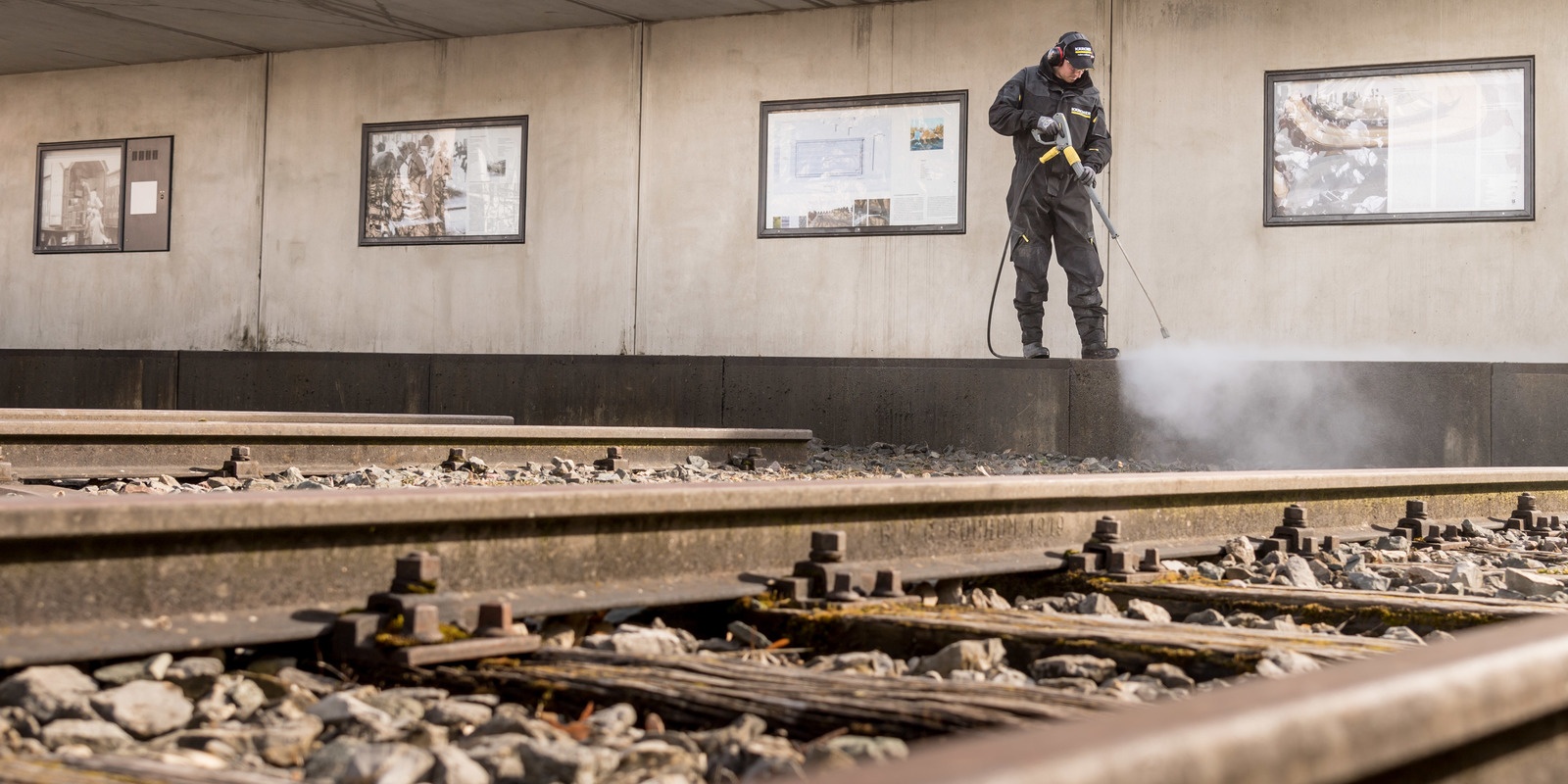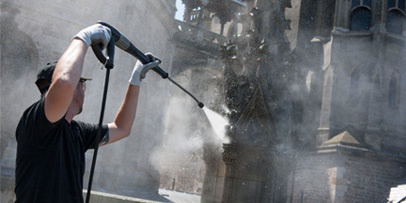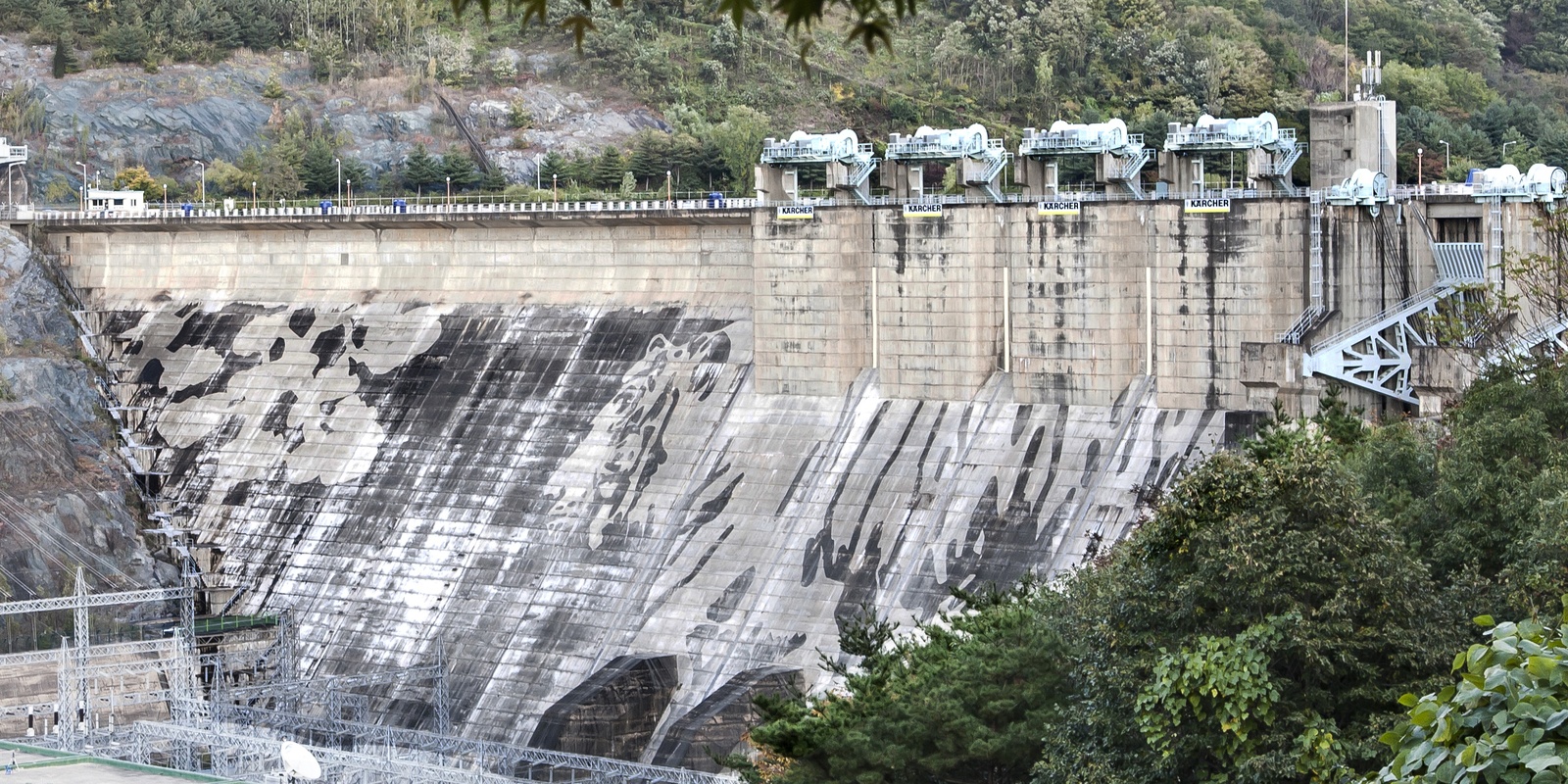Kärcher contributes to the preservation of UNESCO World Heritage in Vietnam
As part of its cultural sponsoring, Kärcher cleaned the southern main gateway of the former imperial city of Huế in Vietnam.

Facts at a glance
Country: Vietnam
City: Huế
Material: Limestone, bricks, mortar
Soiling: Biogenic growth
Cleaning technology: Hot water high-pressure cleaning in gentle steam mode with a low surface pressure of 0,5-1 bar
Execution: March 2019
As part of its cultural sponsoring, Kärcher cleaned the southern main gateway of the former imperial city of Huế in Vietnam. Over decades, the tropical climate, with plenty of rain and high humidity, has led to the original colour of the brickwork and the grey limestone being covered in dark organic vegetation. This damages the façade’s surface in the long term. Kärcher cleaning experts removed these deposits from Noon Gate, which was erected in 1804 and is the largest of the four main gates that frame the imperial city. Huế was built by Emperor Gia Long based on the model of the Forbidden City in Beijing, and it has been a UNESCO World Heritage Site since 1993.
Cleaning challenges
Their country's cultural heritage is of special importance to the people of Vietnam. Thus, a particularly careful and gentle approach is important for the cleaning work, which contributes sustainably to the monument's preservation. A natural ageing process and increasing patina is part of the valuable features of monuments and historical buildings. "Cleaning does not deprive this monument of its original character, but contributes to ensuring that future generations will also be able to see and experience its beauty," says Thorsten Möwes, cleaning expert at Kärcher, who was responsible for performing the work on site.


Four hot water high-pressure cleaners generated the steam that removed algae, mosses, fungi, lichens, and bacteria.

Deeper-seated spores could be destroyed due to the steam's high temperature.

Huế was built by Emperor Gia Long based on the model of the Forbidden City in Beijing.

Gentle steam cleaning
To clean the monument, the experts used a gentle steam setting at a surface pressure of 0.5 to 1 bar and a temperature of up to 100 °C. Four hot water high-pressure cleaners generated the steam that removed algae, mosses, fungi, lichens, and bacteria. This way, absolutely no chemicals were needed. This type of cleaning also delays the growth of new biogenic vegetation, as the steam's high temperature destroys deeper-seated spores. "Hot steam cleaning is the most effective, harmless and best method for looking after and preserving the mineral building substance, especially in the tropical Huế. The cleaning of the Noon Gate was a convincing start," says Andrea Teufel, restorer of the Society for the Preservation of Cultural Heritage (CPCE) in Huế.
The Imperial City of Huế
Huế was the capital of Vietnam during the Nguyễn dynasty, which lasted from 1804 to 1945. Most of the buildings were badly damaged during the Vietnam War. The South Gate is one of the best-preserved buildings and was reserved for exclusive use by the Emperor. Today it is the entrance gate for visitors.




